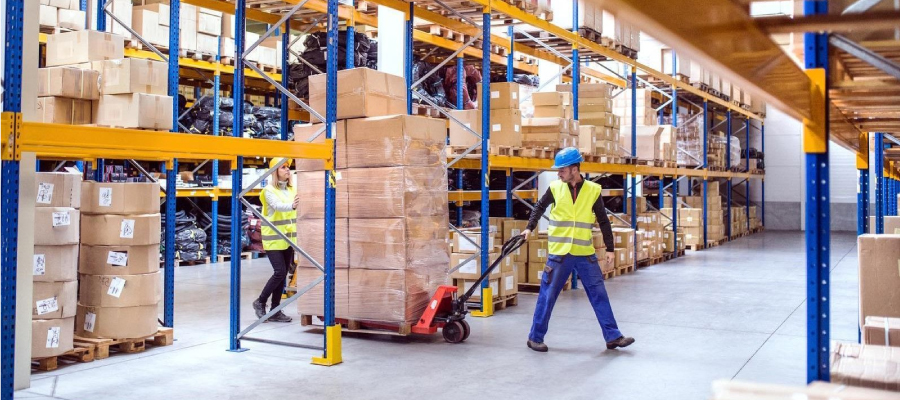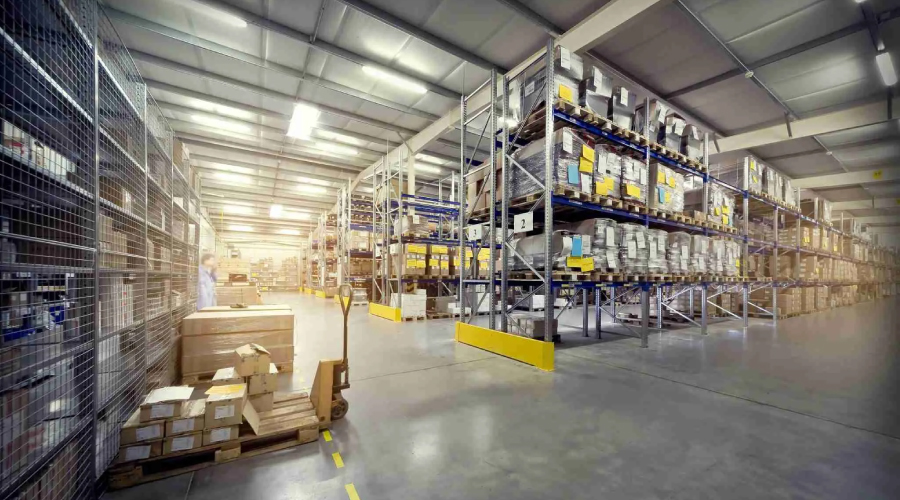Many people are confused about the purpose of warehouses, often thinking they are merely storage spaces. It is the foundation of efficient inventory control, an important factor in smooth operations, and, ultimately, a significant driver of customer happiness. Storage is considered the unsung hero of the supply chain; it works in the background to keep everything running smoothly. Learn about our warehousing services that ensure your goods are stored and delivered efficiently. In this article, we’ll examine the ten vital functions of warehousing and explain why each is so important to the operation of any company.
Understanding Warehousing & Its Functions
The basic function of warehousing is storing items while they are distributed to consumers or merchants. These things can be finished products, raw materials, or anything. Storage is essential to successfully running many businesses, including manufacturing and e-commerce. Now, let’s examine the essential warehouse roles that maintain company success!
Top Ten Functions Of Warehousing

Here comes the time to discuss the primary topic, which is the top ten functions of warehousing! Undoubtedly, the word “storage” blinks in our minds whenever we hear the term warehouse, but the list of functions comprises multiple points, from inventory management to appropriate distribution.
Storage Of Goods
Naturally, storing products is warehousing’s main purpose. Better stock management from organized storage helps avoid the dreaded overstocking and stock outs. Imagine managing a company without knowing whether you have enough inventory to meet customer demand. When you store your items properly, you are confident you have an organized inventory available when your consumers need it.
Inventory Management
Warehouses are essential for monitoring stock turnover and inventory levels and let you know when to restock. Real-time inventory management is revolutionary since it reduces losses and guarantees you can effectively satisfy client expectations. Nobody enjoys disappointing clients by denying them access to a product. You can stay updated about stock levels and be ready at all times with the help of intelligent inventory management.
Protection Of Goods
Goods are shielded from environmental elements, including weather, theft, and warehouse damage. This protection is especially critical for perishable goods. Consider this: you wouldn’t want your expensive goods thrown away because they weren’t stored properly. A well-stocked warehouse keeps your bottom line strong by preserving product quality and reducing waste.
Risk Management
By adopting security measures and specific conditions, warehousing helps reduce theft, damage, or degradation risks. Businesses may save a lot of money on insurance and product replacement by practicing proper risk management in storage. Investing in security measures and proper storage is essential for protecting your assets. After all, a wise business owner understands that avoiding losses is just as crucial as increasing revenue.
Order Processing
Order processing, selecting, packaging, and shipping are all tasks that may be completed in a modern warehouse. Customer satisfaction may be increased by processing orders efficiently. Everybody adores quick deliveries. Orders that are precisely and swiftly completed save delivery times and encourage repeat business from clients. A smooth order processing system enhances the overall customer experience.
Transportation Coordination
Warehouses greatly aid the coordination of the incoming and outgoing movement of products. This feature guarantees on-time delivery, lowers expenses, and optimizes delivery routes. Businesses may simplify processes and fulfill their client commitments by managing transportation well. Timely order delivery is crucial for customer satisfaction.
Value-Added Services
Some warehouses provide extra services that go above and beyond, including packing, labeling, and assembly. These value-added services prepare goods for distribution or sale by improving the whole supply chain. Before your items hit the stores, it’s like having a one-stop shop for everything you need. This saves time and ensures that your products are ready to impress customers.
Seasonal Storage
Warehouses are ideal for holding seasonal goods during off-peak hours, particularly for companies whose demand varies. With this feature, companies can ensure that their items are accessible when customers are clamoring for them by stocking up ahead of periods of high demand. Having the appropriate things in stock at the right time may make all the difference in sales, whether it’s summer apparel or seasonal decorations.
Price Stabilization
Because warehousing balances supply and demand, it aids in price stabilization. People can store goods to release them during times of scarcity when output is high.
This function is essential for maintaining profitability and avoiding market fluctuations. Businesses may contribute to maintaining stable pricing and high levels of customer satisfaction by holding items during times of high production and releasing them at moments of spiked demand.
Efficient Distribution
Businesses may efficiently deliver items to several places using centralized storage. Reduced transportation costs and quicker delivery are the results of efficient distribution. Quick delivery can help your business stand out in today’s competitive market, where convenience is key. A well-designed distribution system fosters loyalty and improves customer service.
Conclusion
Storage of products is only one aspect of warehousing; it also includes a variety of essential tasks for running a firm. These ten important functions of warehousing reveal a business’s triumph, ranging from order processing and inventory management to risk mitigation and effective distribution. It is time to evaluate your storage requirements if you are a company owner. With Faddico, discover how to improve your warehouse tactics and see your company grow.
FAQs
Do warehouses have some consequences?
As we know, warehouses mostly have boundaries, and the traffic flow, specifically trucks, remains at a peak, producing nitrogen dioxide, contaminating the air, and becoming the culprit in environmental pollution.
What is the average size of warehouses in the USA?
The average size of a warehouse in the USA depends on the industry. However, a rough idea is about 180,000 square feet.
How does AI help in the warehousing industry?
Artificial Intelligence is revolutionizing the world, and the warehousing industry is no exception. AI here helps manage tasks automatically, accurate inventory management, and reduce labor costs.





